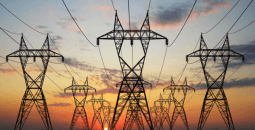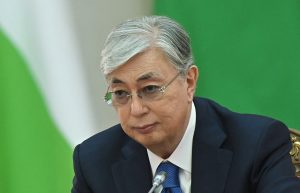

Kazakh President Kassym-Jomart Tokayev has announced a national referendum on October 6 to determine the future of nuclear energy in the country. This decision follows a year of discussions and debates on whether Kazakhstan should build a nuclear power plant (NPP) to meet its growing energy demands.
In his annual state-of-the-nation address on Monday, President Tokayev underscored the urgency of securing reliable and environmentally friendly energy sources. He cited the “global energy deficit” and Kazakhstan’s “dire need” for sustainable energy as key reasons to explore nuclear power. Tokayev emphasized that while nuclear energy could significantly support the country’s expanding economy, the final decision should rest with the people.
“The topic has been on the public agenda for a year,” Tokayev said, referencing his earlier announcement of plans for a referendum. “I believe this is enough time for citizens to make a balanced decision. Therefore, I support the government’s proposal to hold a national referendum on October 6. Today, I will sign the corresponding decree.”
The decree was formally published on September 3 and took effect on September 2. The referendum will ask the citizens of Kazakhstan a straightforward question: “Do you agree with the construction of a nuclear power plant in Kazakhstan?”

Kazakh President Kassym-Jomart Tokayev
The Kazakh government is considering the construction of up to three nuclear power plants across the country. Potential sites include the shores of Lake Balkhash, the city of Kurchatov on the Irtysh River, and a location in Western Kazakhstan where a medium-power station previously operated. Four companies are under consideration for the project: China’s CNNC, South Korea’s KHNP, France’s EDF, and Russia’s Rosatom.
As the referendum nears, public opinion remains divided, similar to the debates in the mid-1990s when Kazakhstan last considered nuclear power.
Economist Aidar Alibayev is among those opposed to the project. In an interview with Deutsche Welle (DW), Alibayev argued that building a nuclear plant is not economically necessary. He believes that Kazakhstan has sufficient existing capacity to generate electricity, though much of it has fallen into disrepair over the years.
“We need to modernize our thermal and hydroelectric plants and focus on renewable energy sources,” he said.
Alibayev also warned that constructing a nuclear plant near Lake Balkhash could pose significant environmental risks if an accident were to occur.
Conversely, businessman Chingiz Serikov, who has over 20 years of experience in the energy sector, strongly supports nuclear energy. He argues that Kazakhstan’s future energy independence depends on it.
“Kazakhstan is the world’s largest producer of uranium and already has the infrastructure to produce nuclear fuel. All that remains is to build a power plant,” Serikov said.
He also highlighted that the country currently imports up to 20% of its energy from Russia, which he views as unsustainable.
Kazakhstan, which holds 12 percent of the world’s recoverable uranium, has long been a key player in the global uranium market. However, the country has not used its uranium for power generation since a facility in Aktau closed in 1999 as part of Kazakhstan’s commitment to nuclear non-proliferation.